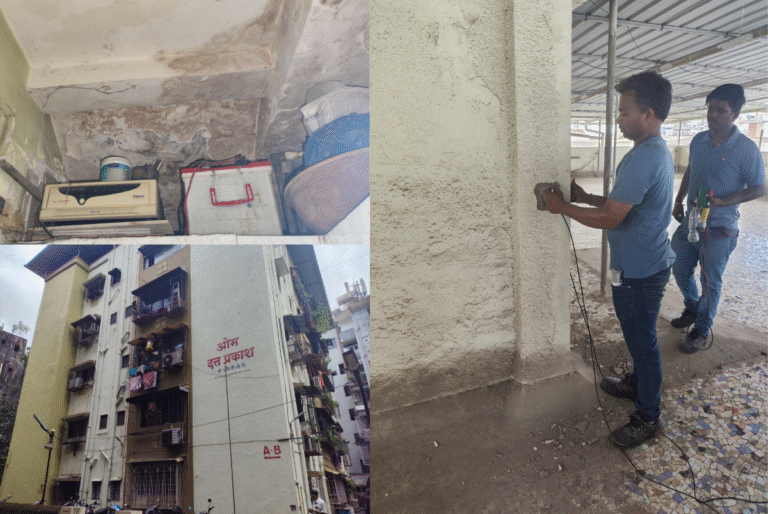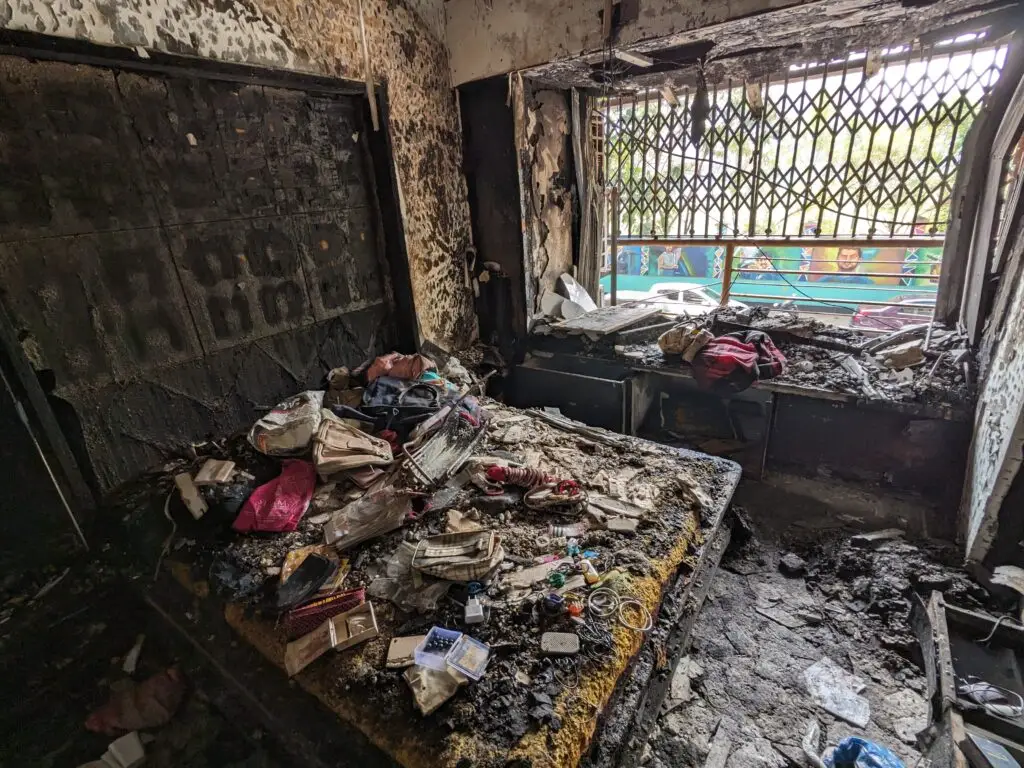Redevelopment promises modern living standards and better infrastructure.
However, redevelopment without proper structural audit can create long-term dangers.
From legal disputes to complete building failure, poor planning puts lives, money, and safety at risk.
This article explains why a structural audit is the foundation of every successful redevelopment project
What is a Structural Audit and Why It Matters Before Redevelopment
A structural audit is a scientific assessment of a building’s current health.
It identifies visible and hidden defects such as corrosion, foundation cracks, weakened beams, and load-bearing failures.
Redevelopment based on assumptions instead of precise engineering reports often leads to unsafe construction planning.
A certified structural audit provides real-time data about the structural capacity of the building to withstand future loading conditions.
Without this information, any redevelopment plan is a guess, not a design.
Audit reports help determine whether a building should be redeveloped, retrofitted, or partially reconstructed.
They detect risks early, reducing repair costs and preventing complete demolition if not required.
Many developers skip this step to save time or cost, but this decision can lead to expensive failures later.
A structural audit ensures compliance with government regulations and prepares accurate feasibility reports for redevelopment proposals.
Certified consultancy firms like Aavishkaar Consultants use advanced testing technologies such as rebound hammer tests, ultrasonic pulse velocity, and core testing.
These tests provide a clear picture of material strength and remaining life of the structure.
A proper audit builds the framework for safe planning, budgeting, and approvals.
It is not an optional step; it is the legal and safety backbone of redevelopment.

Consequences of Skipping Structural Audit in Redevelopment
Ignoring a structural audit may seem like a shortcut, but it creates long-term risks.
Without accurate knowledge of existing structural conditions, redevelopment plans may be flawed.
Load distribution, column placement, and foundation capacity could be incorrectly calculated.
This can result in future cracks, leakages, misalignment, or total collapse.
Financial consequences are also significant.
If a redeveloped building shows defects after completion, repair costs will fall on residents or developers.
Insurance claims may be denied due to non-compliance.
Buyers may file legal cases claiming possession of unsafe property.
Government authorities may revoke building occupancy certificates if the redevelopment does not meet safety codes.
In many cases across India, redevelopment projects have been halted midway due to lack of valid structural audit documentation.
Legal Liabilities and Non-Compliance Risks
Skipping a structural audit violates mandatory redevelopment regulations outlined by municipal authorities.
Housing societies that begin redevelopment without an approved audit report may face penalties, project cancellation, and legal cases from residents.
Building collapse or structural damage due to negligence exposes developers and society members to criminal liability under safety laws.
Authorities can halt construction or refuse Occupancy Certificates.
Unsafe Structural Design Decisions
Architectural plans rely on accurate data about load-bearing elements.
Without a structural audit, redevelopment plans may not match existing soil strength or foundation stability.
Even small miscalculations can cause structural distress.
Improper column positioning or under-designed foundations can lead to long-term failure.
Audit ensures safe design decisions grounded in real building performance data.
Real-Life Failures Caused by Lack of Structural Assessment
Across India, several redevelopment projects have faced severe consequences due to skipping structural audits.
Buildings experienced premature cracking within two years of occupancy.
Water seepage damaged internal walls and beams because drainage loads were not assessed properly.
In some cases, entire wings had to be evacuated due to unsafe column settlement.
These failures prove that internal structural conditions cannot be judged visually.
A structural audit identifies internal corrosion invisible to the naked eye.
In coastal areas such as Mumbai and Thane, saltwater corrosion weakens reinforcement bars.
Without tests, developers unknowingly build on compromised foundations.
The result is expensive repairs, halted projects, or legal disputes.
In extreme cases, building collapse causes loss of life.
Benefits of Conducting Audit with Aavishkaar Consultants
Aavishkaar Consultants offer comprehensive structural auditing services for safe and compliant redevelopment.
Their team inspects each element, including slabs, beams, columns, foundations, and drainage.
They use non-destructive testing methods to ensure zero damage to the structure during inspection.
Their reports are approved by government authorities and accepted by redevelopment agencies.
Using audited data, societies can negotiate better redevelopment terms with builders.
Audit-based redevelopment ensures improved FSI utilization, efficient planning, and maximum safety.
Aavishkaar Consultants not only identify risks but also provide repair and strengthening recommendations to ensure long-term safety.
Data-Driven Redevelopment Planning
Aavishkaar delivers reports backed by testing, calculations, and safety projections.
This scientific data helps architects and developers plan accurate layouts, avoiding guesswork.
It leads to optimum cost savings and better space utilization.
Long-Term Quality Assurance
By conducting a structural audit, future risks are eliminated.
Material quality, life expectancy, and corrosion protection measures are defined in the audit.
This ensures that the redeveloped building remains durable for decades.
How to Initiate a Structural Audit for Redevelopment
To begin the process, a housing society should appoint a certified structural consultant.
A formal site inspection is conducted.
Non-destructive tests are performed to evaluate the building’s life.
The consultant then prepares a structural condition report with redevelopment recommendations.
This report is submitted to municipal authorities for redevelopment approval.
Based on the audit, the society can proceed confidently with builder selection and project planning.
Final Thoughts and Action Plan
Redevelopment without structural audit is like building on an unknown foundation.
It creates avoidable risks and future failures.
A structural audit is not a delay; it is the most important step that protects lives, investment, and legal compliance.
For societies planning redevelopment, choosing certified auditors like Aavishkaar Consultants is the best decision for a safe and successful future.
Visit www.structuralauditor.in to schedule your structural audit today.



Really eye-opening article! Redevelopment without a proper audit is basically like playing chess without studying the board — one wrong move and the whole strategy collapses. Your explanation of how structural audits prevent future failures is spot-on. At SMCA Chess Academy, we strongly believe every strong outcome starts with deep analysis. Great insights, and kudos for spreading awareness!